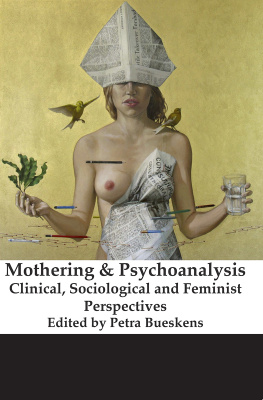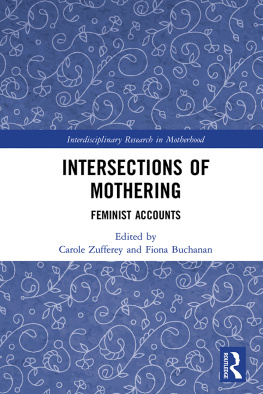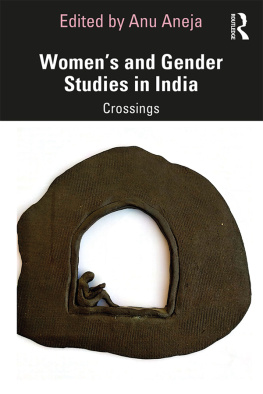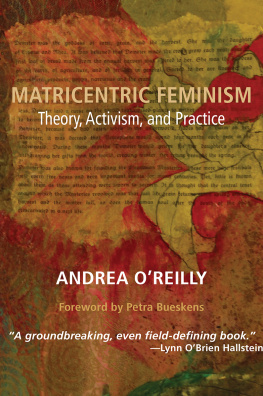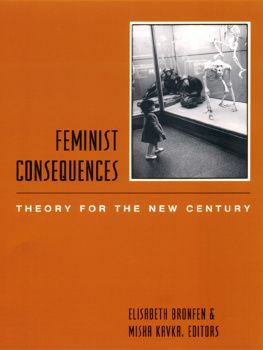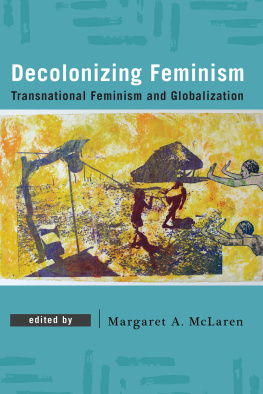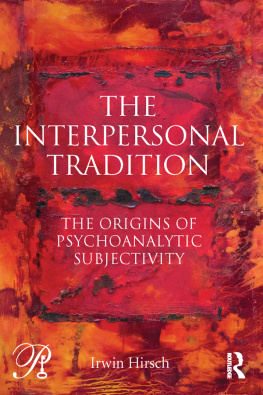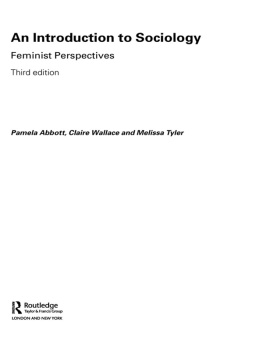Mothering and Psychoanalysis: Clinical, Sociological and Feminist Perspectives
Mothering and Psychoanalysis: Clinical, Sociological and Feminist Perspectives
Copyright 2014 Demeter Press
Individual copyright to their work is retained by the authors. All rights reserved. No part of this book may be reproduced or transmitted in any form by any means without permission in writing from the publisher.
Demeter Press logo based on the sculpture Demeter by Maria-Luise Bodirsky < www.keramik-atelier.bodirsky.de >
eBook development: WildElement.ca
Printed and Bound in Canada.
Library and Archives Canada Cataloguing in Publication
Includes bibliographical references.
ISBN 978-1-927335-26-0 (pbk.)
1. MotherhoodPsychological aspects. 2. MotherhoodSocial aspects. 3. PsychoanalysisSocial aspects. 4. Psychoanalysis and feminism. 5. Women psychotherapists. I. Bueskens, Petra, 1972-, editor
HQ759.M88379 2014 306.8743 C2014-904124-1 S
Demeter Press
140 Holland Street West P. O. Box 13022
Bradford, ON L3Z 2Y5
Tel: (905) 775-9089
Email: info@demeterpress.org
Website: www.demeterpress.org
Table of Contents
Dedications
To Nick who made it all possible.
And to Mia, Sophia and Tom who made me what I am.
Acknowledgements
Heartfelt thanks go to Professor Andrea OReilly for her patience and wisdom through-out the writing of this book. She has allowed me to move this deadline without judgment or criticism so many times I have lost count. Her support and friendship are a blessing and her passion for motherhood scholarship is unparalleled. I also give thanks to the Demeter Press publication team: Lyndsay Kirkham, Angie Devau, Tracey Carlyle and Renee Knapp who have all done a wonderful job as midwives of this book!
I would like to thank the two anonymous reviewers who forced me to clarify what this book was about and to expand the theoretical lens to include context for articles outside the conventional psychoanalytic canon and for some very practical advice on how to hold the different discourses of motherhood studies, psychoanalysis, feminism and social theory together. In encouraging an inter-disciplinary focus while pushing me to clarify what this book was trying to do, I think they helped make it a better book.
I would also like to thank all the contributors to this book who, in the first instance, had enough faith in the project to submit their work and, in the second, and, in the second, to stay with it through several rounds of revisions. They have also stayed with the project even as it took longer to produce with the birth of my (third) baby and a new academic job.
I would like to thank cover artist Matt Cheyne for allowing me to use his exquisite image The Pythia and for his excellent graphic design skills that he offered gratis. I would like to thank my Head of School Professor Ione Lewis for being a supportive, flexible and family-friendly boss and in particular for allowing me to work from home. I would also like to thank her for some last minute and very helpful editing of my own chapter in section 1. I would like to also acknowledge the generous support made by my home institution the Australian College of Applied Psychology
I would like to thank my partner Nick Wong for his many hours of support with this project - both caring for our children and making home with all that that entails practically and emotionally, and for helping me with reading drafts of my writing, correcting typos and making sure all the references were in the right style and format. This literally saved me hours of time. Thank-you for this and so much more Nick!
To Sarah Hewat for twenty years of friendship, support, love and understanding that is the emotional cornerstone of my life. Our snatches of time away from work and kids are like oxygen for my soul.
I would also like to thank my parents, Jenny and Rolf Bueskens, who have provided loving care of our daughter Sophia through-out the early stages of writing and for being enthusiastic and supportive about my many and varied projects.
I would also like to thank Brooke Ward for her more recent and very special care of Tom enabling me to go on the final stretch of writing and editing.
There are many others who have been supportive in the background while this project took -shape. Thank-you: Pia, Beck, Petr, Eve, Zoe, Sophia, Milly, Peg, Tony, Annshar, Miri and Meg for conversation, laughter, joy and commiseration.
Introduction
Mothering, Feminism, Psychoanalysis, Psychotherapy and Sociology: Intersections and Antinomies
PETRA BUESKENS
Freud is the father of psychoanalysis, it had no mother.
Germaine Greer ( The Female Eunuch 104)
Can women be good-enough mothers and still be subjects in their own right?
Wendy Hollway ( Capacity to Care 65)
INTRODUCTION
This book brings together the different disciplinary strands of psychoanalysis, sociology and feminism to consider motherhood and mothering. The psychoanalytic focus includes both theoretical and clinical applications ranging from textual analyses of films, books, art and popular culture through to qualitative research on mothers, clinical case studies and reflections on therapeutic technique. The sociological focus includes a critique of therapy culture (Furedi 22-23) and its gendered implications with special reference to carethe care of mothers and of therapists - as well as the relationship between psychotherapy, capitalism and the culture industries. Feminismiswoventhroughouttheseanalysesfunctioningasaninternalcritique of both psychoanalysis and sociology usefully extending their range and reciprocal influence.
I have organized the material around five core themes: (1) the therapist as mother, (2) the mother in therapy, (3) mothers in art and culture, (4) mothers in theory and practice, and (5) sociological interventions in therapy culture. It endeavors to generate dialogue across disciplinary borders demonstrating key contributions each field makes to the other. While not all the papers are interdisciplinary (given that feminism and feminist theory is generated from within disciplines), each chapter integrates at least two of these perspectives in order to explore the topic of mothers, motherhood, and/or mothering; taken together the volume integrates psychoanalytic, feminist and sociological perspectives.
In many ways this is an impossibly eclectic book; it didnt emerge out of a conference on a specific theme, or the collected papers from a particular school of thought under an overarching mentor; rather it grew organically out of the interdisciplinary interests of myself and the authors who contributed chapters. In addition, I have selected key chapters for re-print that address the intersections between the maternal, the psychic and the social such that the volume functions as both a compendium and a selection of new work in the field, which is not really a field but rather an intersection of scholarly and clinical disciplines. In practice this means seasoned scholars such as Lisa Baraitser, Alison Stone, Lynne Layton and Eva Illouz as well as legends in the field such as Nancy Chodorow - are placed alongside emerging scholars and practicing therapists and counsellors whose work and interests are more practice based. This makes for a diverse volume at both disciplinary and methodological levels. While some scholars are working on more theoretical levels, others are working with clinical material, some are focused on the application of psychoanalysis to culture, while others are explicitly critical of the enterprise of analysis and therapy more generally. In addition, while I have used the more orthodox terms psychoanalysis and sociology in fact some practitioners in the volume see themselves more as psychodynamic practitioners and others as simply using psychodynamic concepts; likewise, sociological covers a theoretical or experiential emphasis on the social more broadly and includes both well recognized sociological concepts and social theory as well as empirical sociology.

